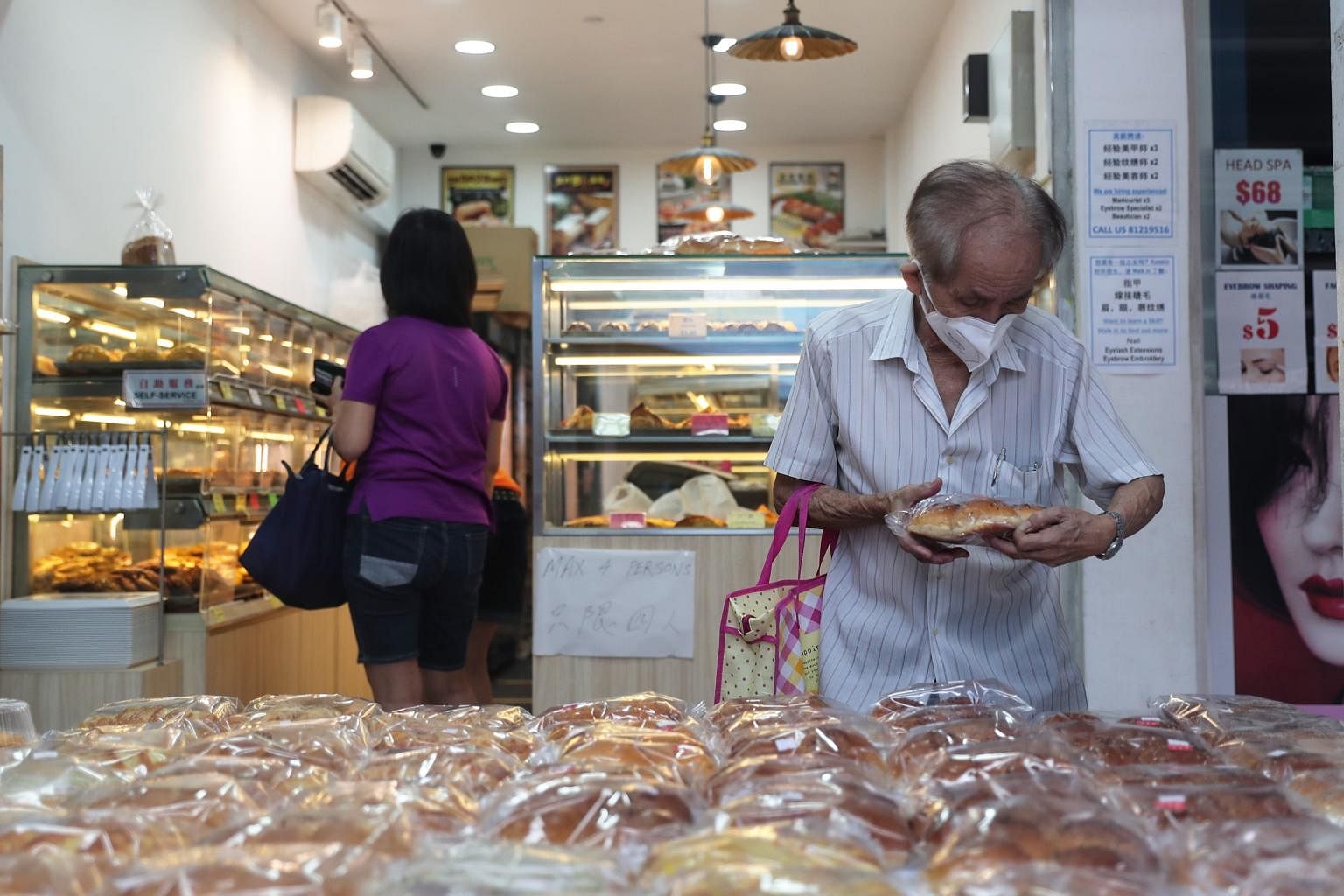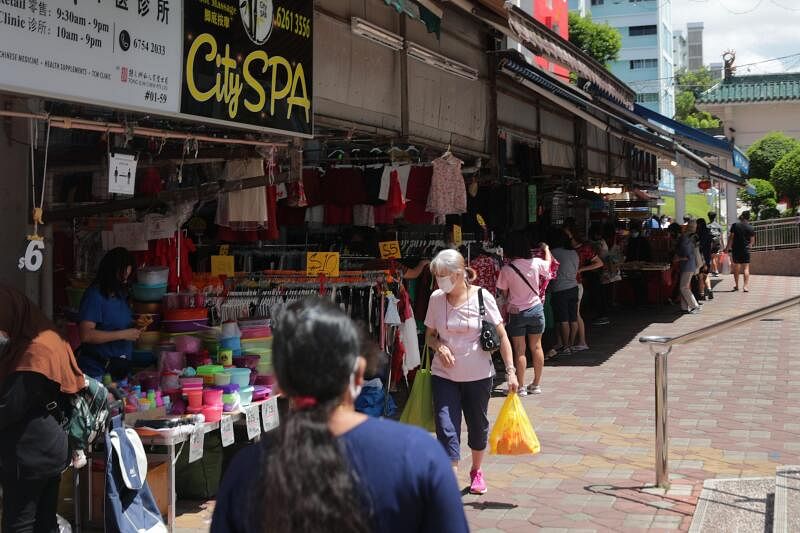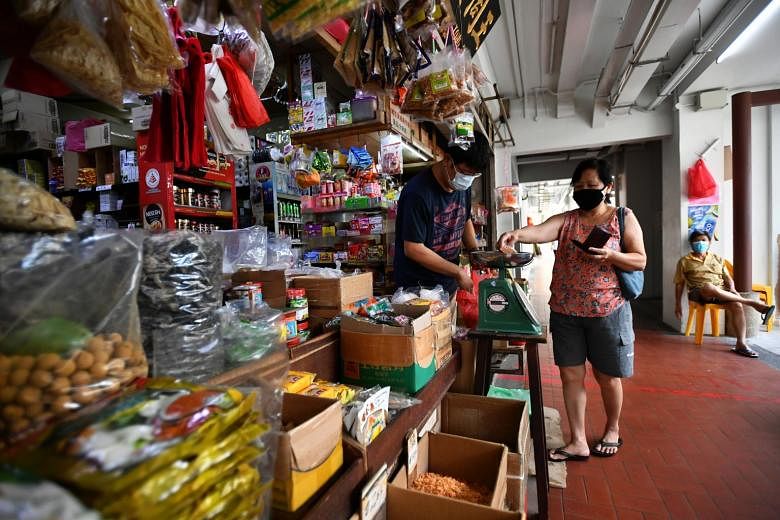SINGAPORE - Proposals are being weighed up to bolster heartland shops with a range of steps in the mix such as lowering operating costs, selling goods online and boosting staff skills.
The measures are preliminary at this stage but could follow a Government study that will look at the social and economic value of HDB shops and the benefits they can bring to local communities.
The study will also look at the impact Covid-19 has had on heartland shops and assess factors that can help them stay viable amid shifting demographics and trends.
The eight-month long project outlined in Housing and Development Board (HDB) tender documents issued in January will include a minimum of 1,500 surveys, 80 in-depth interviews with stakeholders and 10 focus group discussions.
The consultant undertaking the study is also required to identify three neighbourhood centres that are suitable for rejuvenation and devise ways to improve their vibrancy.
These could include design changes, new programmes and managing public spaces to cement stronger relationships among the community.
Experts welcomed the study, saying that heartland shops have proven to be of great value during the pandemic, particularly during the two-month circuit breaker last April when Singaporeans were confined to their homes.
Ms Ling Mengzhi, a PhD candidate studying urban planning and urban life at the National University of Singapore (NUS), said the pandemic has created an opportunity for residents to re-explore such stores and forge stronger bonds with people and communities within their neighbourhoods.
Heartland shops can become "social glues for the community", added Ms Ling.
Associate Professor Lawrence Loh from the NUS Business School said the intrinsic value of HDB heartland shops has been underappreciated, especially in newer estates with a younger population.
"In older estates like Queenstown and Ang Mo Kio, there are always seniors milling around and it contributes to the vibrancy of the neighbourhoods. But in estates like Punggol, where there are more young families, you don't get that. Most just go straight to the big malls," he added.
"In a time when people frequent malls and chain shops, HDB shops are the best-kept secrets right in your backyard."
The HDB has around 15,000 shops spread out across town centres, neighbourhood areas and precinct shop clusters that are either rented out by the housing board or owned by private operators.

Some trades like laundromats and bakeries do better in a HDB setting than others, said Prof Loh, as they offer daily essential goods and services that are convenient and accessible to residents.
Lower rents have been drawing young business owners to the heartlands to set up trendy cake shops, bistros and cafes right beside traditional mum-and-pop shops, said Ms Lim Xiu Ru, a lecturer at Singapore Polytechnic's School of Business.
The benefits are two-fold as these new shops serve the needs of nearby residents and also help to lure customers to the older shops nearby that may not have a digital presence, she noted.
"(They) can also potentially help rejuvenate the image of what was once a quiet and sleepy estate," Ms Lim added.
One such up-and-coming brand is Bakes by NY, a bakery selling items such as stuffed doughnuts and burnt cheesecake. The brand has two heartland shops - in Yishun and Tampines - and an outlet at a shophouse in Simpang Bedok.
While physical sales used to account for most of the sales, owner Muhammad Khairul Anwar, 35, said the pandemic has led to a spike in online trade.
The shops could not cope with the transition initially and customers complained about late deliveries, he added, noting: "It'll also be good if the study can look at how we can get more help with going digital, because we don't have much experience in this area."

Meanwhile, shops offering more traditional services face a different challenge.
Mr Winston Chai, 39, whose shop in Yishun Central provides key duplication services, said he finds it difficult to expand his pool of regular customers despite advertising online given growing competition from other businesses over the years.
"It can help if the study looks at how shops like us that provide services can draw more customers, since it's not so easy for us to offer these services online," said Mr Chai.
Ms Jan Lim, co-founder of Participate in Design, a non-profit to help neighbourhoods and public institutions design community-owned spaces, said possible strategies to improve the vibrancy and value of heartland shops include having community-run enterprises such as those that create employment opportunities for housebound residents.
The arts community can also be involved in staging activities in public areas, she added.

